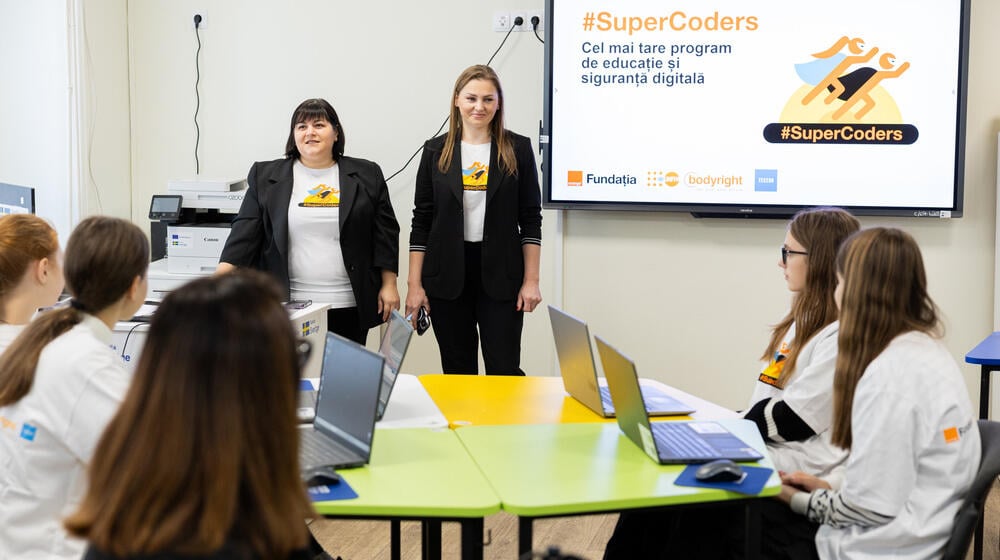The "Mihai Eminescu" Gymnasium in Cantemir, part of the Model Schools Network, has joined the national #SuperCoders Project this year, along with other 69 other educational institutions across the country. This year’s edition aimed to raise awareness among 1400 young people and their parents about digital violence and online safety measures, as part of the #Bodyright movement and #SuperCoders program run in partnership by the United Nations Population Fund (UNFPA) and Orange Foundation.
Natalia Popa and Aurelia Delibaltov, teachers at the "Mihai Eminescu" Gymnasium and now certified #SuperCoders trainers, eagerly joined the Project. They were motivated by the two key topics—“Online Safety” and “Generative Artificial Intelligence”—as well as by the fact that, for the first time, the Project was also designed for parents.
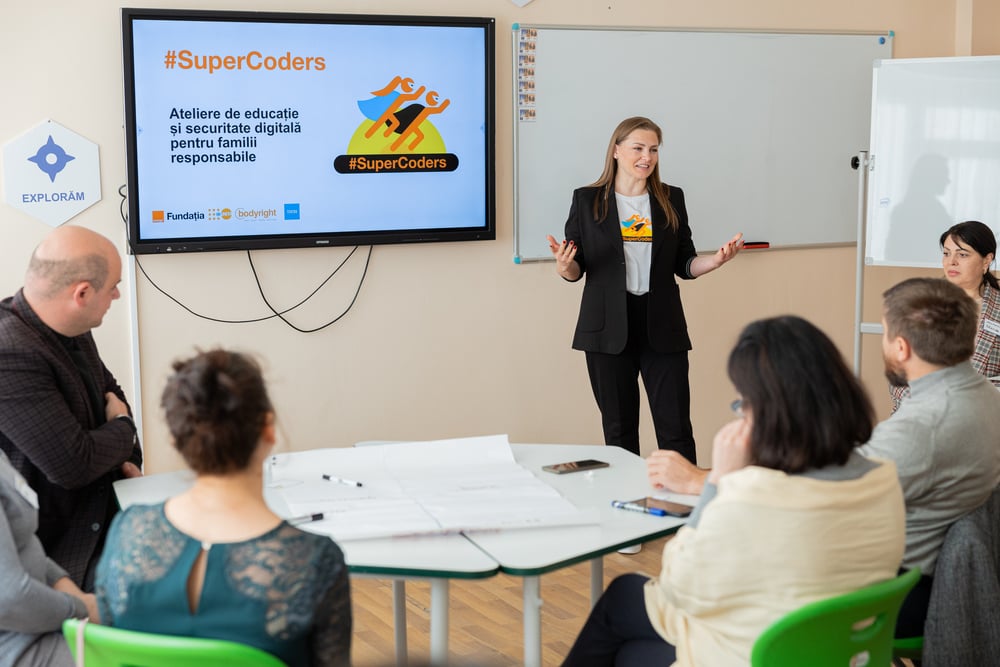
"Access to phones during lessons is prohibited. However, outside of school hours, students access various websites and groups, and parents are not always aware of what these platforms represent or how to intervene. To ensure that every parent has access to information about online safety, we decided to present it during general meetings as well as traditional class gatherings. Additionally, through the Student Council, we will organize informational activities for all children and teenagers. Participating in this Project is a double motivation for me—as a teacher and as the mother of a 15-year-old teenager. I want to stay informed so that I can help my students and support my own child," emphasized Aurelia Delibaltov.
"Teachers need to be lifelong learners to stay connected to the needs and interests of their students. The new reality 'requires' us to have a deep understanding of technology. I learned a lot of new information and discovered several AI-based applications, such as Suno and Leonardo, which I plan to use in my teaching. I will pass all this knowledge on to my students because they already use artificial intelligence but know little about how to use it properly or how to protect themselves from the dangers behind AI," said Natalia Popa.
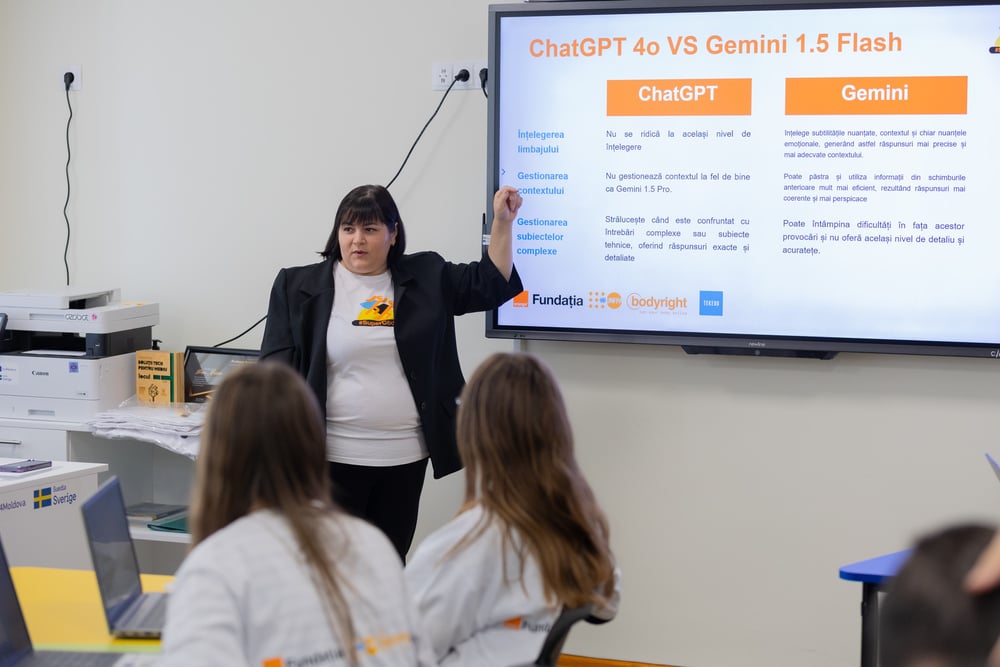
Guided by trainer Natalia Popa, 20 teenage students (aged 12–14) explored the world of Artificial Intelligence and discovered how to create texts, music, and images using new technologies.
"I discovered new and useful applications for creating projects and presentations with attractive designs and graphic elements. I also learned that a secure password should have 16 characters, should not be used across all platforms we manage, about different scam schemes, and how to check if a website is trustworthy," said Andreea Miron, an 8th-grade student.
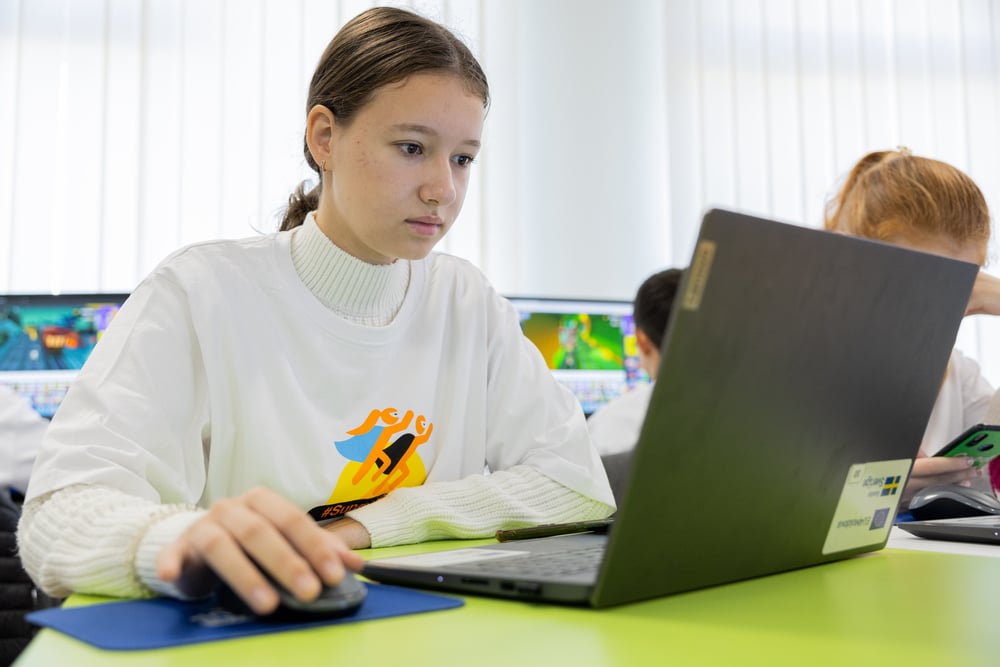
Vlad Miron, a 6th-grade student, shared that he frequently uses artificial intelligence to prepare his homework. The #SuperCoders workshop introduced him to new applications and features that will be useful for creating school projects. Additionally, he learned how to avoid traps set by suspicious individuals who use AI-based schemes to target minors in conversations.
Meanwhile, in another room, the parents of students involved in the project, guided by trainer Aurelia Delibaltov, discussed online safety measures for children and teenagers. In total, 2,800 teenagers and parents from the 70 participating institutions attended the workshops simultaneously.
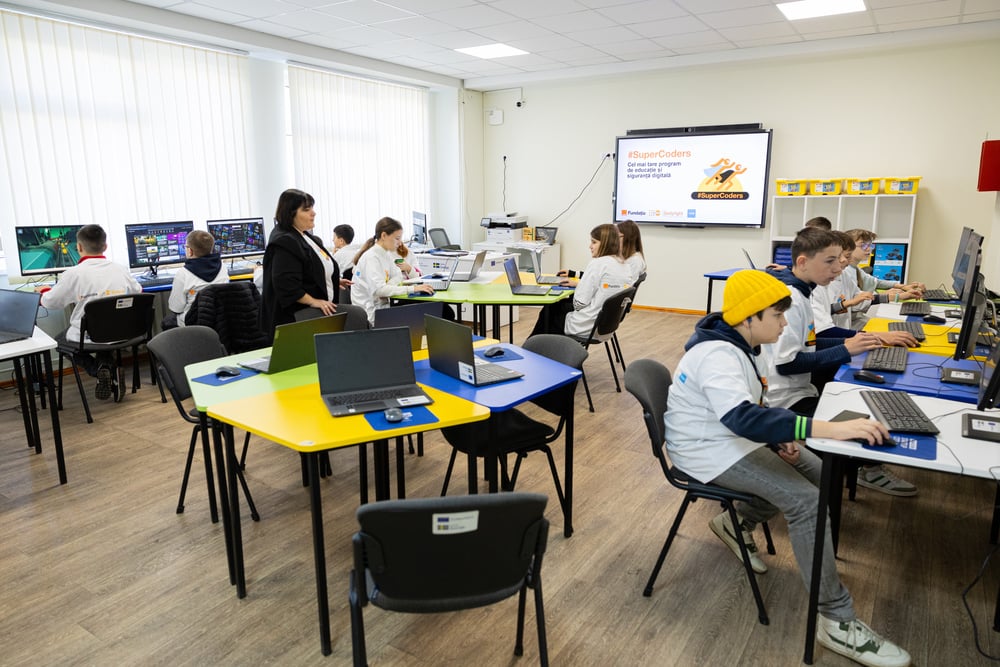
Viorica Dari, a mother of three children, including two teenagers aged 10 and 13, expressed her concerns about the growing trend of parents buying advanced smartphones for children at a young age, which comes with increased risks:
"Parents should monitor what their children access online, what they post, and what they send to others. My child, who is in third grade, has a button phone. I recently bought my older son a smartphone because he’s involved in various school activities and needs social media. Even though he has created an account, he doesn’t post photos of himself. We often talk as a family about responsible online behavior," said Viorica Dari.
Also attending the workshop was Vasile Eșanu. In addition to being the father of three teenagers, he is a school psychologist and a Technology Education teacher.
"I left the workshop with a wealth of new knowledge—about forms of technology-facilitated violence, platforms for reporting online abuse cases, methods to protect teenagers, and more. In my family, we have introduced strict rules regarding phone access: parental controls, well-defined limits for using gadgets, and restrictions on certain apps. We discussed all the risks and decided to watch together the videos presented during the workshop," said Vasile Eșanu.
The #SuperCoders project was launched by the "Orange" Group. This year’s edition was organized under the auspices of the Orange Moldova Foundation in partnership with the United Nations Population Fund (UNFPA). It is part of the #Bodyright movement, initiated in 2023 by UNFPA in collaboration with Orange and other organizations, aiming to raise awareness among youth and parents about digital violence and online safety measures.
Over the past few years, UNFPA Moldova has intensified its efforts to prevent digital violence through the global #Bodyright initiative, awareness-raising actions in middle and high schools, collaboration with the private sector, and support for improving legal mechanisms for the prevention and intervention of technology-facilitated violence.

